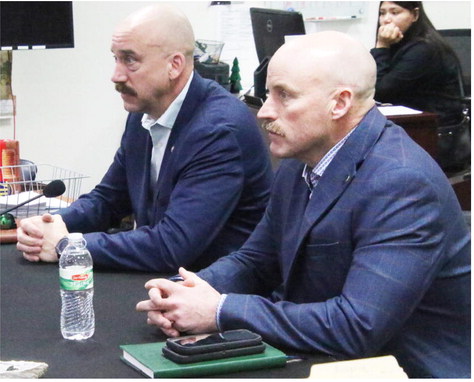McMahon said the opportunity to ….
McMahon said the opportunity to conduct brewing-quality research at MSU was a perfect fit.
“We’ve never had a brewer. It’s like this incredible gift,” said Sherman. “He’s got industry experience and he knows how to talk about brewing and to brewers. Just like we’ve started doing malting research in recent years, he can start doing brewing research. I’m sure that a year from now, we’ll be working on something we never even thought about.”
Using a small suite of in-lab brewing equipment, Sherman and her team will evaluate new and existing barley varieties for end-use quality. Because the brewing process involves so many factors, the possibilities are endless, she said.
“Brewing involves living organisms interacting, and so a lot of it is the yeast, which has a huge impact on the flavor and the product,” said Sherman. “It has a lot to do with the minerals that happen to be in the soil that get incorporated into the barley, and then the minerals in the water that you use to brew with. We know that all of those factors are impacting the malt, but how does that carry over into the flavor? We don’t have that data yet, and that’s our next step now that we’re able to brew.”
In addition to in-house barley and brewing research, the lab will extend its services to brewers or maltsters who want quality and chemical analyses done on their products. Producers will be able to send samples to Sherman’s team for analysis on everything from alcohol content and bitterness to gluten levels.
For Sherman, conducting brewing research is the natural continuation of her lab’s evolution. Now, she says, MSU will be able to provide knowledge and data on every stage of the barley breeding, growing, malting and brewing processes, better serving the region’s producers and the consumers of Montana’s barley acreage.
“When you’re a breeder, one of the most important things is gathering a lot of data over a number of years from barley grown in different environments, which will make your selections a lot better,” Sherman said. “Now, we can get our own brewing data, which helps us to make better decisions when developing varieties. It’s already empowered us.”

